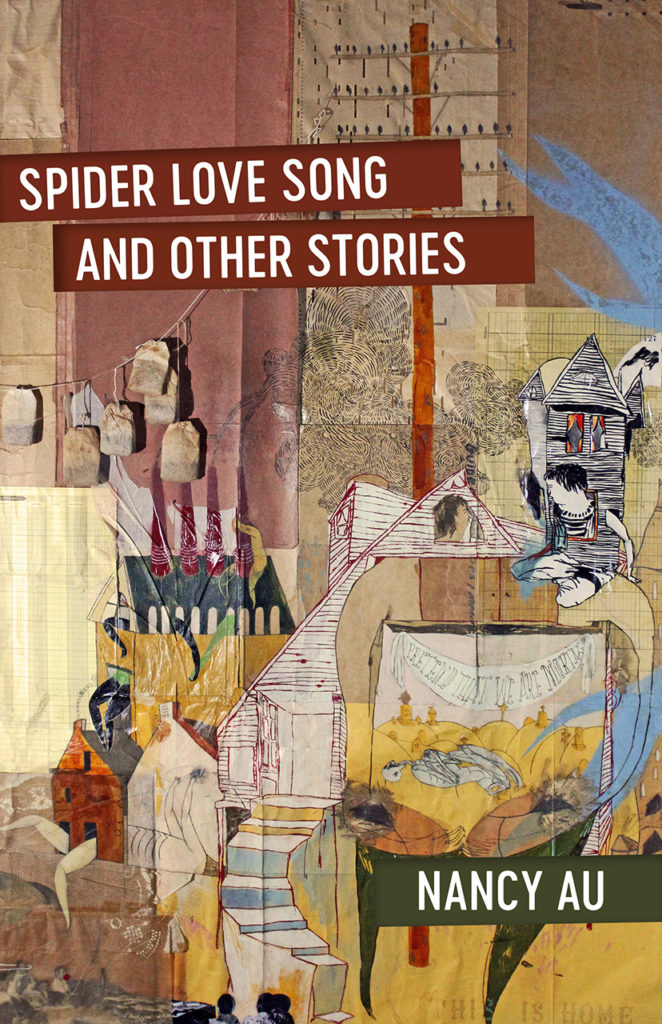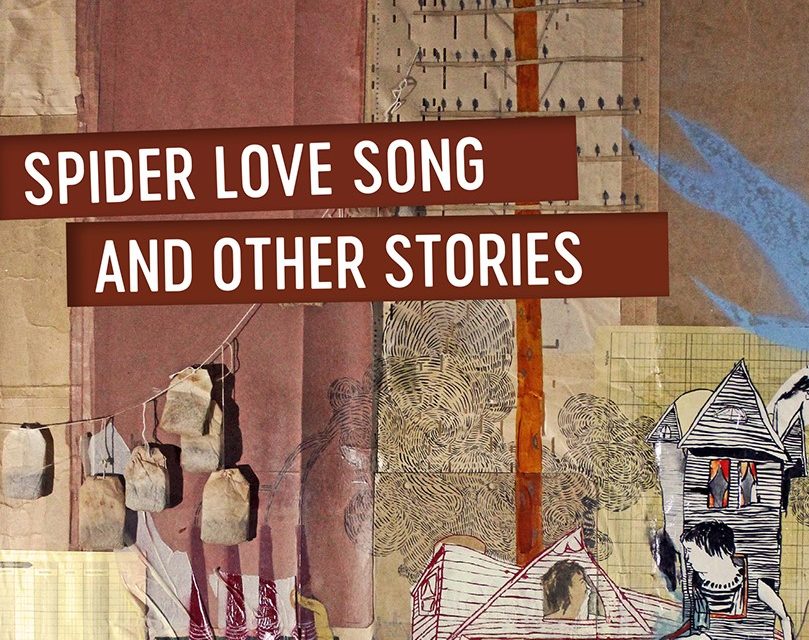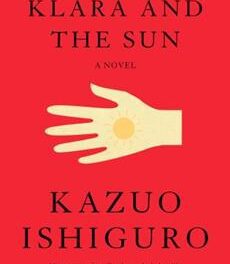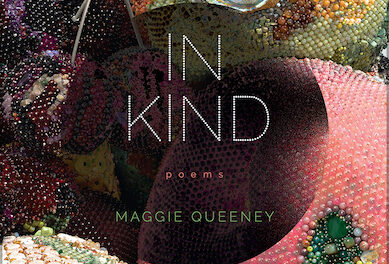
Assistant Editor Maggie Su: Spider Love Song and Other Stories by Nancy Au (Acre Books, 2019) is a short-story collection about stories—how narratives can be used to construct and deconstruct lived realities. As Au’s characters negotiate difference and isolation, invisibility and hypervisibility, they are constantly imagining. In a Foglifter Journal interview, Au (a CR contributor) writes, “I imagined the capacity and capability my characters have to haunt their bullies, to enthrall with their unknowable, untouchable, unseeable selves.” In this collection, character dreams are pointed rather than passive—stories are ammunition, a means of survival.
The opening story, “She is a Battleground,” begins with a dichotomy: twelve-year-old boys versus “the old Chinese woman they call Baboochka.” Readers are granted access into the old woman’s interiority as she both predicts the boys’ futures (“in two years the boys will become teenage fools”) and asserts her own identity. Au writes, “In her own true myth, she is not a corny grandmother, soft like a pillow. . . . She is a battleground.” The story presents a clear and conscious subversion of the passive Asian woman stereotype. However, on the surface, the phrase “her own true myth” appears to be a contradiction: how can her assumed identity be both “true” and a “myth”? Here Au establishes the power of storytelling as an act of resistance. While the boys force their narrative onto Baboochka, she has the power to refashion the threads.
In “Little Harlot,” the narrator is not an old woman but a seven-year-old girl at her grandmother’s funeral spending time with Lin, her cousin whose pregnancy caused her to drop out of college. As Lin faces the pain of her family’s judgment, our narrator struggles to find words to shift the narrative—“what answer might help Lin to hear the word harlot in the way that I first did, as a term of strength, defiance, independence.” Au uses language to show the generational sexism that reduces Lin’s identity to “harlot” or “mother.” Through the eyes of the young girl, the reader sees how Lin’s story is changed and manipulated, taught and untaught. In the end, Lin puts on one of the aunties’ panties and says, “I’m gonna stain the hell out of ‘em. Our secret. Will you tell?” A radical new path is created through the secret-keeping as Lin twists against the lines of her story.
In the title story, ten-year-old Sophie never takes off her homemade elephant costume. She wants to be like the elephants that “lived long lives; their mammoth memories could make the grandest storyteller blush.” From beginning to end, Spider Love Song and Other Stories cloaks the reader in costume, invites us into the “mammoth memories” at the heart of its characters. All of Au’s stories have power to wound and comfort, to heal and connect. In an interview, Au states that she “writes for survival and to have a voice.” Through the depth and layers of her characters’ dreams, her stories offer powerfully realized alternate worlds.











